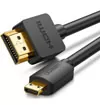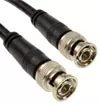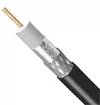Have a QUESTION?
Look here
-
 CCTV
CCTV - SHIPPING & DELIVARY
-
 INSTALLING
INSTALLING -
 GUARANTEE
GUARANTEE
CCTV is short for Closed Circuit Television, meaning that one or more cameras are connected to a recording & monitoring device.
CCTV cameras are used to view and monitor areas to ensure that they are safe and secure.cameras are used to view and monitor areas to ensure that they are safe and secure.
DVR is short for Digital Video Recorder, a device that records CCTV camera footage onto one or more hard disks. It has a number of BNC connections to connect to the cameras. Our DVR’s can support 4, 8, 16 and 32 channels (connections) on the BNC ports whilst several of our NVR’s can also connect to IP cameras over the network.
DVR is short for Digital Video Recorder, a device that records CCTV camera footage onto one or more hard disks. It has a number of BNC connections to connect to the cameras. Our DVR’s can support 4, 8, 16 and 32 channels (connections) on the BNC ports whilst several of our NVR’s can also connect to IP cameras over the network.
he supplier you select should demonstrate an all-around set of credentials including qualified expertise and time served experience. This should be supported by a track record of delivering quality solutions, including case studies, testimonials and access to referral sites with fully integrated systems.
Industry credentials such as NSI Gold accreditation mean the supplier has achieved the highest recognised standard of the national body inspecting firms providing security systems across the UK. This level holds the greatest perceived value across industry and by the police, fire and rescue services and insurers.
Verification of alarm activation with visual information from CCTV systems eliminates false activations and helps emergency service response to be correctly prioritised. CCTV provides greater safety for security personnel because IP systems enable real-time camera images to be viewed on mobile devices, so first responders are equipped with live, real-time video and able to understand exactly what to expect when investigating.
- Orders must be positioned by 2 pm (GMT) to be dispatched the same day.
- Orders positioned after 2 pm will be processed the next working day.
- We deliver orders Mon – Fri (excluding Bank Holidays).
- If you order before 2 pm on Friday, you should expect delivery on Monday.
- Orders positioned after 2 pm on Friday and over the weekend will be processed on Monday for delivery the next working day.
- Please let an extra working day for deliveries over Bank Holidays. No orders are packed or shipped on U.K. Bank Holidays.
- Free shipping Over £200
Next Working Day – DPD
- DPD offer a ‘Predict’ service; you will be sent an email and/or text on the morning of your delivery with a one-hour delivery place.
- If you are not going to be in, you can arrange for your order to be delivered to a secure location. Left with a neighbour, or you can set delivery to a local pick-up store.
- DHL deliveries can be at any time on the scheduled delivery date.
- If you are not home, the delivery person may attempt to give your order to a neighbour.
- If your order is not available, we will contact you by email to inform you.
- If there are some things that we need to prove on your payment details, we will contact you by phone or email to confirm.
- Please be aware, we cannot ship to P.O. Box addresses. We will contact you for an alternative address.
- We can’t be held responsible for delayed or missing packages when the delivery address has been inputted incorrectly or incomplete.
Once your order has been shipped, it is not always possible to cancel an order due to the quick delivery times. You may need to wait for your parcel to be delivered and then return the order as summarised on our Returns page.
The idea of drilling holes through the walls of your house to operate video and power cables for a security camera system might seem intimidating. Still, many security systems come in all-included packages that make setting up your surveillance system a breeze. Follow the next 6 steps to install your home camera system.
- Planning before installing a CCTV camera
- Mounting the camera
- Placing the DVR
- Managing the cables
- Connecting the wires
- Power on the system
Ukcctv products are free from defects in materials or quality for the specified warranty period. Within this period, Ukcctv will, at its sole option, repair or replace any components that fail in regular use. Such repairs or replacements will be made at no charge to the customer for parts or labour, provided that the customer shall be responsible for any transportation costs.
The warranty does not cover failures due to unexpected or purposeful damage, electrical surges, lightning strikes or unauthorised alteration or repairs.





















